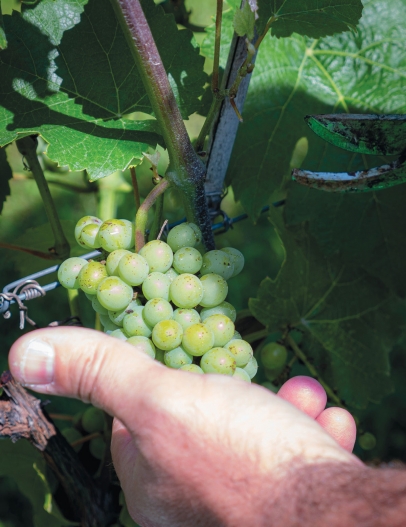New Jersey’s Wine Industry has Deep Italian Roots, and a Next Wave is Under Way
The great wave of Italian immigration slowed to a trickle in the 1920s, but its cultural significance in New Jersey is perhaps greater today. One in six state residents claim Italian heritage. By some accounts there are 2,000 pizzerias and 600 Italian restaurants in the state, although not all are Italian-owned.
The Italian impact on commercial winemaking, however, is not as apparent. It has been there from the early days of that fruitful immigration period, but a next wave now seems to be exerting more obvious influence on the industry.
There is not a lot recorded about the role early Italian immigrants played in the state’s wine industry. It was recognized, minimally, in Sal Westrich’s 2012 book New Jersey Wine: A Remarkable History, in which the author cites a 1909 State Board of Agriculture report that said, “The coming of the Italian to our southern counties means a steady increase in the production of grapes and small fruits.”
Instead, the Italian American families behind many of the wineries today have maintained the history through colorful and poignant stories. Personal accounts of the (literal and figurative) roots set down by grandparents and great-grandparents are more than storytelling and displays of pride. They are not just a familial tug at tradition’s heartstrings; they are a direct connection to the past brought into the present and future through wine.
Scott Donnini will tell you how his first-generation-immigrant father, Louis, moved the family to Italy for four years when Scott was 9 and much of his Auburn Road Vineyards and Winery in Pilesgrove can be traced back to his early expatriate experiences.
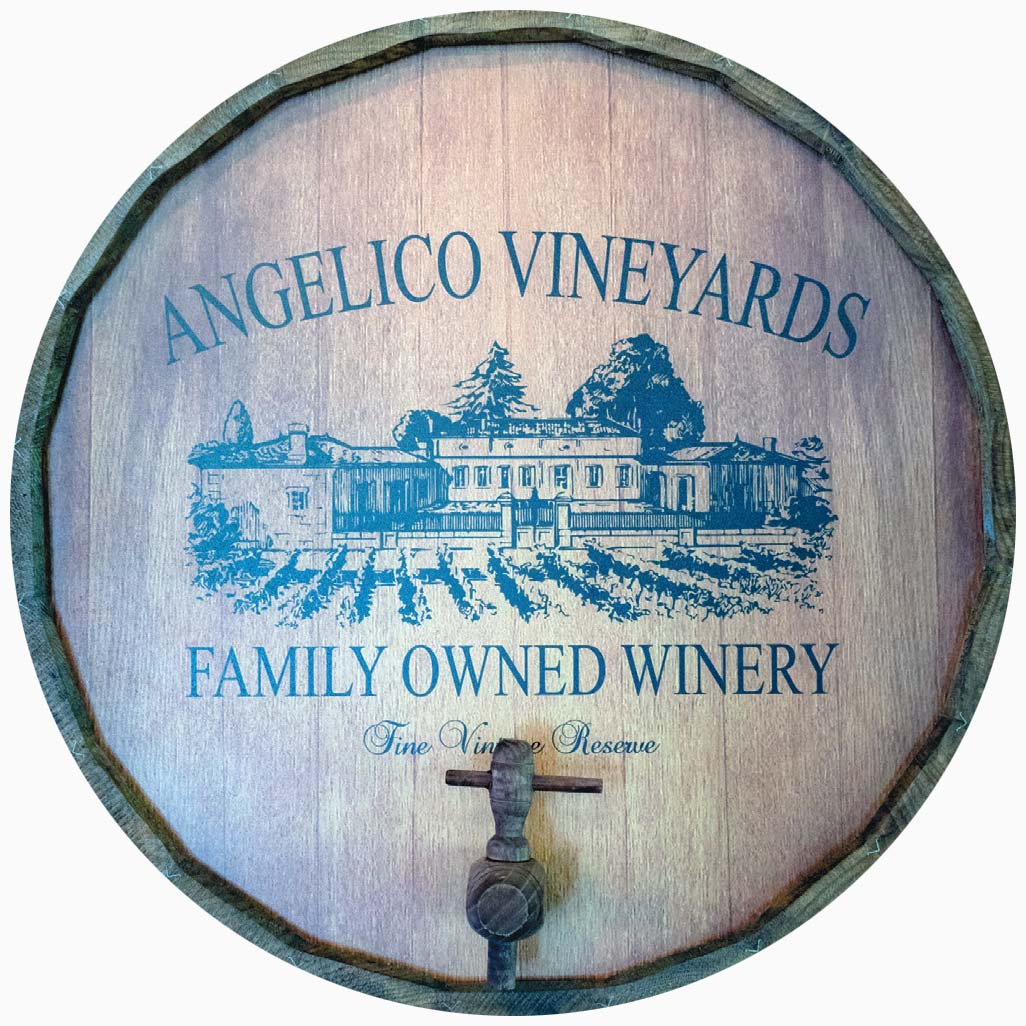
“Much of what Auburn Road is has its roots in my Italy experience. Our tasting room, in fact, is called ‘the Enoteca’ and is modeled after an Italian wine bar with pizza, gelato, cappuccino all available to guests.”
Jack and Charlie Tomasello will recount the family history of how their grandfather, Frank, a Hammonton berry farmer with a penchant for growing grapes and making wine, drove through a snowstorm to Washington, D.C., at the tail end of Prohibition to be one of the first in line for a winery license, becoming License No. 68 nationally in 1933. Their sons are now actively involved in the business of the 70-acre Tomasello Winery, and surely capable of sharing those same stories across four generations. ►
Talk with Mike Beneduce of Beneduce Vineyards in Pittstown and he will tell you of his great-grandparents who came from outside Naples to Madison and were rose farmers. The family tradition of home winemaking, which was treated like a holiday, spurred him on to plant a vineyard on the family property while still in college.
“I’ve been interested in planting some Italian varieties for a while now,,” notes the winemaker, “which is probably influenced by a combination of my heritage, my love of Italian wine, and my curiosity to see how these varieties would express themselves on our site since many of them are relatively untested in NJ so far.” He plans to start with Dolcetto and Barbera.
Jim Quarella’s grandparents, immigrants from near Lake Garda in northern Italy, bought a farm in 1914 in Landisville and named it Bellview. As a teenager and through college, Quarella grew his own small plot of grapes at the farm. Two generations and 86 years later, he would officially turn the vegetable farm into Bellview Winery. One of the most notable traditions that he has maintained and expanded: Bellview is one of the few wineries in the country to make and sell dandelion wine commercially. To this day it is made from his Grand-Aunt Ada’s original recipe, which he still has, and is an Old-World nod to purposefully using everything the land gives.
Some of the next wave are not descendants but recent immigrants, the name on the winery not from ancestors who came here early in the last century, but much more recently. Otto Angelico has been on a wine odyssey since moving from Italy in 2002. An engineer by trade, he started making cold-climate wine at home in Plattsburgh, NY, a stark contrast to his upbringing in the harsh heat of Catania, Sicily. A transfer to New Jersey warmed things up a bit, and he found an ideal location in Lambertville where he now runs Angelico Winery. He has specifically planted a number of Italian varietals like Barbera, Sangiovese, and Nebbiolo.
Traditionally, the success of Italian varietals in New Jersey has been hit or miss. There is a misnomer that if grapes can grow somewhere, any grapes can be planted, but vineyard location, climate (which can vary dramatically in the state from top to bottom), and clone selection often determine success. Because most of the wineries are small, they don’t have the time, space, and revenue to keep experimenting. Angelico, though, has used his engineering background and has studied extensively over the past decade to learn techniques, technology, rules, and laws surrounding winegrowing and making here. He also carefully studied the property he purchased for his vineyard in 2019 to analyze what varieties he believes will work best.
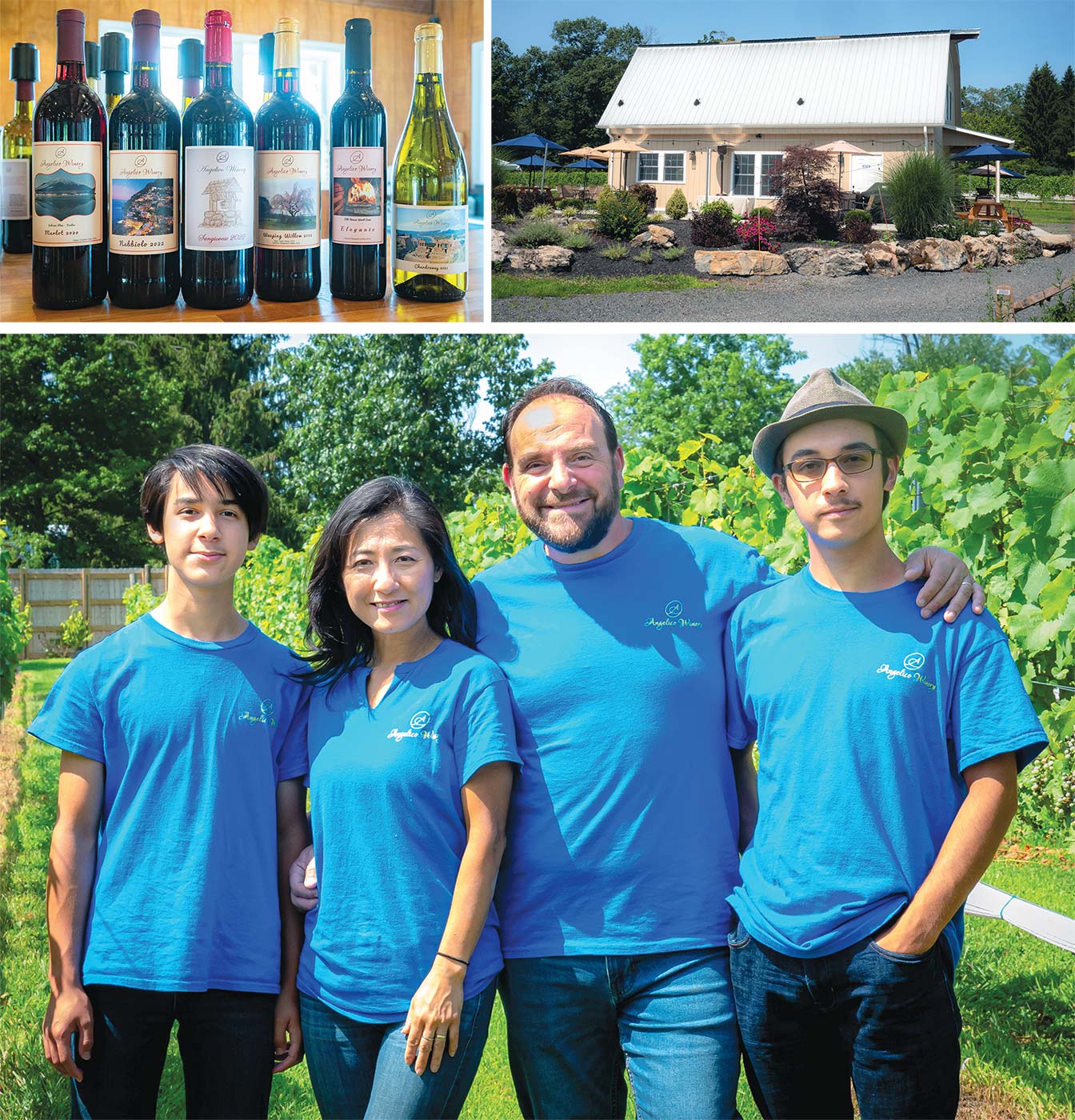
The Angelico Family, left to right: Giulio, Lily, Otto, Antonio
“I BELIEVE THE ITALIAN CONCEPT OF ‘AGRITURISMO’—WINERIES AS WORKING FARMS AND DESTINATIONS—WILL GO A LONG WAY TOWARD CREATING MORE OF A WINE CULTURE HERE.”
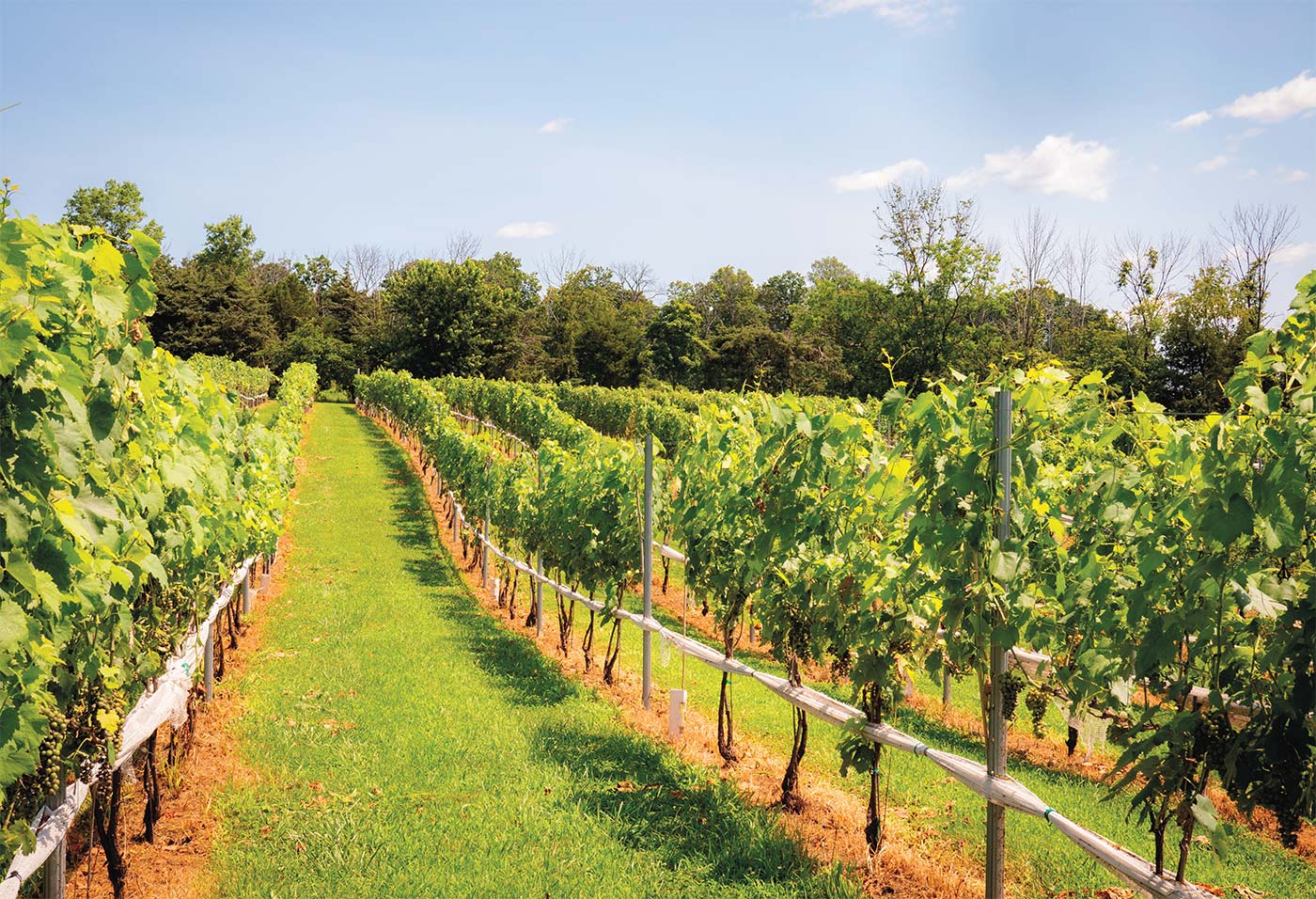
Angelico wants to do more than just make wine from Italian grapes. He wants to create a destination. “I believe the Italian concept of ‘agriturismo’—wineries as working farms and destinations—will go a long way toward creating more of a wine culture here.”
Larry Coia is New Jersey’s “Ponte del Vino,” bridging immigrant tradition with the future of wine in the Garden State. A retired radiation oncologist from a grape-growing family with roots in Italy’s Abruzzo region, he himself started planting grapes while in medical school to have a nice release on weekends, as he described it. “My parents didn’t drink wine and didn’t want anything to do with a farm, but I felt a heritage pull.”
Coia views himself as a vigneron, emphasizing grape-growing more than winemaking. He has planted and experimented with a range of vinifera and hybrid grapes at his own Coia Vineyards in Vineland and recently became part owner of Bellview with the Quarellas. A worldly man, to say the least, while studying Italian in Verona, he met Marco Stefanini, a researcher who was developing new grape varieties that could meet some of the climate challenges in New Jersey that make it difficult to grow many beloved Italian grapes. Working together, they made San Marco, a cross between two Northern Italian varietals, Lagrein and Teroldego, one of the latest “immigrants” from Italy. While the grapes make delicious wines on their own, this newly bred grape has palate-pleasing richness. The first releases of the wine from Bellview have been well-received by the wine media and customers alike.
WORKING TOGETHER, THEY MADE SAN MARCO, A CROSS BETWEEN TWO NORTHERN ITALIAN VARIETALS, LAGREIN AND TEROLDEGO, ONE OF THE LATEST “IMMIGRANTS” FROM ITALY.
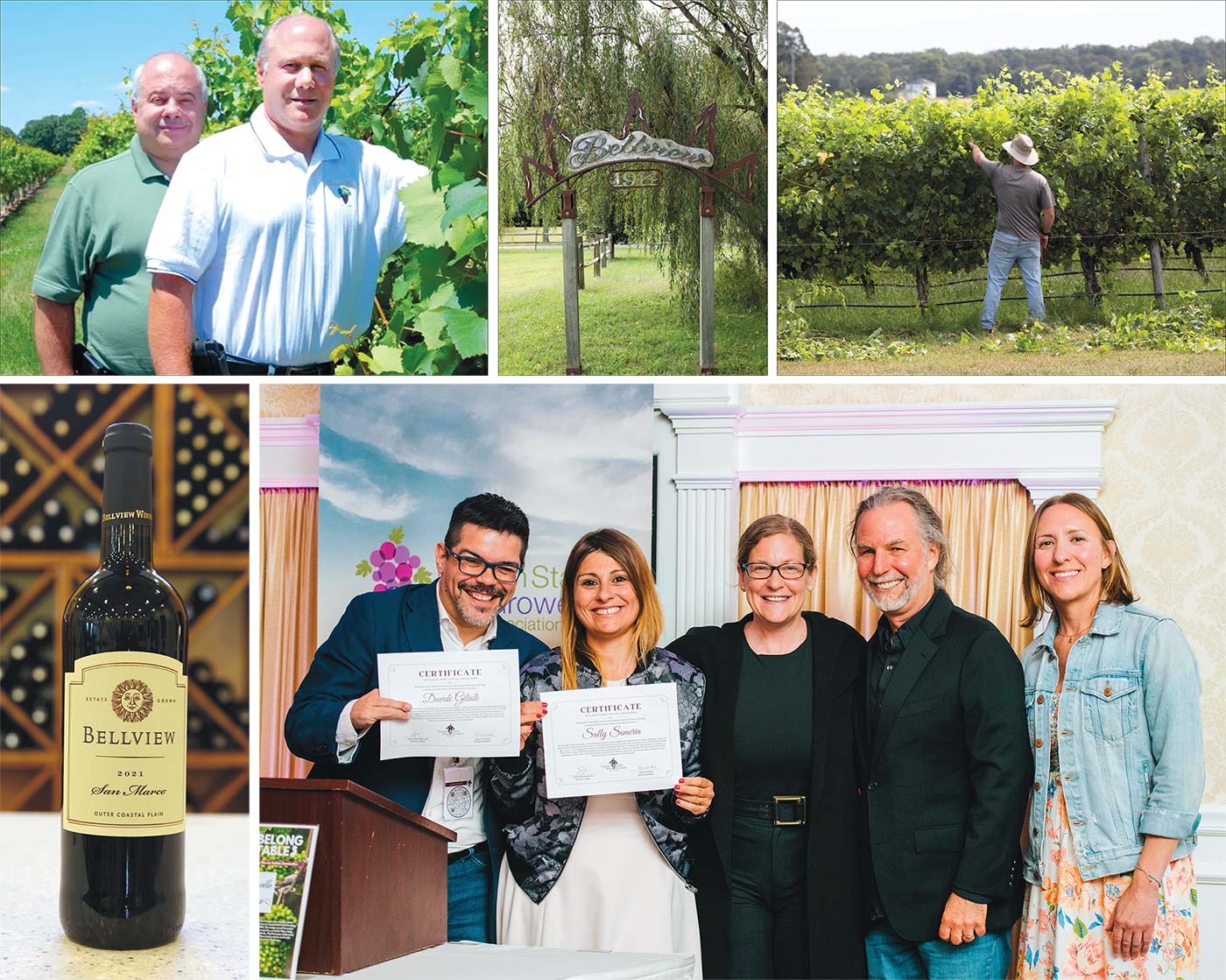
(top left)Charlie and Jack Tomasello of Tomasello Winery; (top middle)Hammonton Vineyards at Bellview Winery; (top right)Landisville; (bottom)Celebrating the initiative to introduce New Jersey wine to Italy. Wine Ambassador Reception at Tomasello Winery, June 2023. Pictured (l.-r.): European ambassadors to NJ Wine Country Davide Gilioli and sommelier Sally Seremia, Devon Perry (Garden State Wine Growers Association), Scott Donnini (Auburn Road Vineyard & Winery) and Kenna Wuerker (Hawk Haven Vineyard & Winery). PHOTOS: TOMASELLO WINERY, COURTESY OF THE WINERY; BELLVIEW WINERY BY MIANA JUN; BOTTOM, COURTESY OF GSWGA
In June, an interesting cross-cultural wine experience happened throughout the Garden State and then in Rome. Sally Semeria, an Italian sommelier who specializes in finding wines from up-and-coming American regions for the purpose of introducing them to Italy, spent a week visiting numerous NJ wineries via a tour organized by the Garden State Wine Growers Association. Semeria found the similarities between Italy and New Jersey to be many, starting with the Italian community in the state.
Semeria set up a tasting at the U.S. Embassy in Rome for an estimated 3,500 attendees to expose them to some of the best wines from New Jersey. “New Jersey is a boutique wine region, with small producers not unlike many in Italy, and I am proud to introduce them to Italians in Italy,” she says.
Auburn Road’s Scott and Jules Donnini were part of the contingent that traveled to attend the tasting. As Donnini noted in his blog the night of the event, “There is still a lot of work to do, of course…. We have logistics to work out, EU labels to create and get approved.” But the seeds of a possible export relationship between New Jersey wines and the Italian market have clearly been planted.
Among the wines poured that night in Rome was the Bell-view San Marco, making a return of sorts to its native land. As Semeria often says, “Good wine has no barriers.” In New Jersey, good wine, and good people, continue to maintain and build a stronger bond with Italy.


